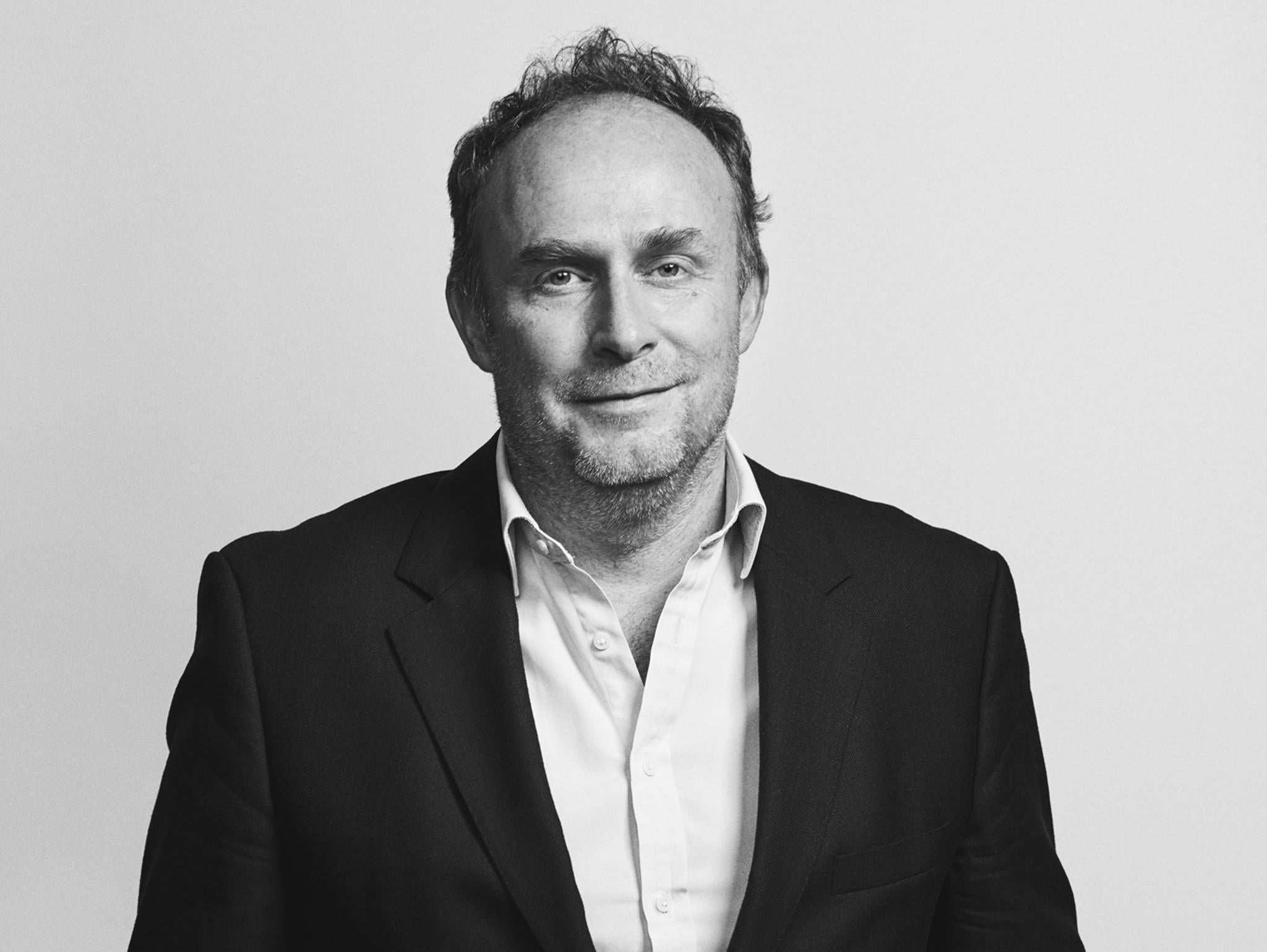Aaron Simpson: fixer for the global super rich on Ibiza, inequality, and the changing tastes of the 0.1 per cent
The founder of the world’s foremost luxury concierge service says billionaires are increasingly looking to spend their millions on meaningful experiences and giving back to the society which helped make them rich, but is bling really dead?

Your support helps us to tell the story
From reproductive rights to climate change to Big Tech, The Independent is on the ground when the story is developing. Whether it's investigating the financials of Elon Musk's pro-Trump PAC or producing our latest documentary, 'The A Word', which shines a light on the American women fighting for reproductive rights, we know how important it is to parse out the facts from the messaging.
At such a critical moment in US history, we need reporters on the ground. Your donation allows us to keep sending journalists to speak to both sides of the story.
The Independent is trusted by Americans across the entire political spectrum. And unlike many other quality news outlets, we choose not to lock Americans out of our reporting and analysis with paywalls. We believe quality journalism should be available to everyone, paid for by those who can afford it.
Your support makes all the difference.“We’ll kidnap you and drop you on Ibiza in a pair of budgie smugglers without a wallet,” Aaron Simpson says with a chuckle.
It’s a strange phrase. When it comes from a man who, over the last 17 years, has built a reputation as the pre-eminent fixer for the world’s super rich, it sounds positively bizarre. But it illustrates a point.
Simpson’s company, Quintessentially, gets wealthy people the things they want, anywhere in the world. A Patek Phillipe watch that has an eight-year waiting list. He’ll get it in a day. Private hire of an ancient Egyptian monument? No problem. An exact replica of Batman's Bat Cave? Consider it done (seriously).
But the extremely well-heeled people on Simpson’s books are increasingly favouring experiences over old-fashioned hedonism and bling, he says. And that’s where the budgie smugglers come in.
I should clarify: Tech entrepreneurs and Saudi billionaires are not going to start falling from the sky onto the Balearics, sporting revealing lycra swimwear. It’s a strictly tongue-in-cheek example of Simpson’s latest project.
“It’s a game concept. We take an individual and we throw them into a situation. They don’t know where they are and they don’t know what’s going on. The whole premise is to test the limits of their own psyche.”
“We’ll put people through psychological profiling so we can see where their pressure points are and take them to the extremes of those points. People want to feel fear but in a controlled way,” he says.
“We aim to be very much surprising, sometimes delighting and probably more likely shocking.”
It sounds like a personalised version of a Derren Brown TV programme. No-holds-barred, immersive theatre for those who have the bank balance to hire Brown to whisk them off into a subversive parallel universe, just for fun.
Simpson’s dabbling in immersive theatre is a side show to the main event: the luxury concierge service, Quintessentially. Its global team is on hand at all times to arrange anything that the company’s clients might desire at short notice.
The company offers what it calls “luxury lifestyle management” for a subscription of around £7,000 to £20,000, with some clients reported to pay significantly more for a higher level of service.
He founded the company along with friends Paul Drummond and Ben Elliot in 2000, a few years after the trio became friends while studying at Oxford. It now employs around 2,500 people in 60 countries.
Simpson, who grew up in Leigh-on-Sea in Essex, wasn’t born into huge wealth; so how did he break into the world of the super rich?
“You don’t break into anything,” he says matter of factly. “You just deliver things that people want: whether it's selling a pack of biscuits or delivering a world-class service to people who want access to the inaccessible.”
“Like all networks, it’s viral, it’s quick and it’s achievable.”
I suspect his personal qualities have also been a significant factor. It's hard not to like him. Despite a contact book full of celebrities he comes across as down-to-earth and refreshingly unguarded.
Simpson also made valuable connections while working in the film industry after university. Quintessentially co-founder, Ben Elliott, also brought his own contact book as the nephew of the Duchess of Cornwall, Camilla Parker-Bowles.
Quintessentially was undoubtedly the right idea at the right time. It has grown as the wealth of the people at the very top of the tree has ballooned, but it would be wrong to think the company has simply ridden a wave. Many others have tried to replicate the formula. Most have failed.
The company is rumoured to count celebrities from P Diddy to JK Rowling as clients and now encompasses 28 businesses, specialising in luxury property, weddings, travel, wine, and more.
There’s an immediate assumption, particularly in the UK, that wealthy people are dodgy and they’re tax evaders
It’s easy to see how the business quickly multiplied into so many strands. Simpson is fizzing with ideas.
Aside from tending to the needs of the global elite, he’s working with fellow entrepreneur Simon Squibb on the board of a startup which he says will “democratise entrepreneurialism”. The platform allows people to collaborate to solve problems. “It’s crowd solutions rather than crowd funding,” he says.
He cites as inspiration the example of a patient who had such a bad experience with the NHS that she wrote to them with a list of solutions and managed to save her local health authority over £20m.
“A lot of people come up with great ideas in their garden shed but never follow through with it because they don’t have the expertise, or the balls, to go out there and do it. Then life takes over.”
Squibb is a good example of another increasingly prevalent streak among wealthy people, says Simpson. “He’s made his fortune and now he’s looking at how he can apply what he does – which is tech – to have a wider impact by giving people a platform and a voice.”
One client of Quintessentially’s is spending “many, many tens of millions” building a marine research vessel that will carry a team of scientists. Then for a few weeks a year, the owner and his family will use it for holidays.
Despite this apparent shift towards wealthy people giving something back to the community in which they made their millions, Simpson says he understands why rich people get a bad press in the current “very divisive” climate.
“There’s an immediate assumption, particularly in the UK, that wealthy people are dodgy and they’re tax evaders.
“Then unfortunately that assumption is proved right by certain very high-profile people doing exactly those things.”
“But there are a lot of entrepreneurs, particularly millennials, who don’t see building an empire as the be all and end all. Many billionaires are very philanthropic, they just don’t shout about it.
“Then there are the ones who just want to know where they are on the [rich] list.”
Most billionaires do care about widening inequality in the world around them, Simpson says. “The debate about inequality is one society is having every day, and wealthy people are probably having more often.”
“Ultimately, a poor society affects everyone. You can try and insulate yourself from it but you’ll still be a part of it, and at the end of the day that is the society that consumes your products.”
He points to the hundreds of billions of dollars that some of the world’s wealthiest people have vowed to give away through The Giving Pledge, an initiative founded by Bill and Melinda Gates and Warren Buffett.
Names including Richard Branson, Michael Bloomberg and Mark Zuckerberg have all signed up to donate the majority of their wealth to good causes.

Despite this, any reports of the death of conspicuous consumption appear to have been greatly exaggerated.
The new superyacht Simpson has planned exemplifies that displays of wealth and status will always have an allure for those with the cash to flash. Dubbed the Quintessentially One, the floating private members club will be a 220-metre, 45,000 tonne temple of opulence costing £250m to build. Quintessentially members can purchase a cabin for several million pounds.
It’s maiden voyage is pencilled in for 2020 and will take in elite gatherings such as the Cannes Film Festival and the Monaco Grand Prix.
“I said to the designer, whatever happens, it's got to be an icon on the water and that’s what he’s come up with,” Simpson says.
“It will be a beacon of luxury. This is going to be like the Eiffel Tower on water, or the Empire State Building. I’m, not joking.”
“I want people to see it out in Ibiza and say ‘yes, that is the Quintessentially One boat and I have got to get on it.’"
Join our commenting forum
Join thought-provoking conversations, follow other Independent readers and see their replies
Comments